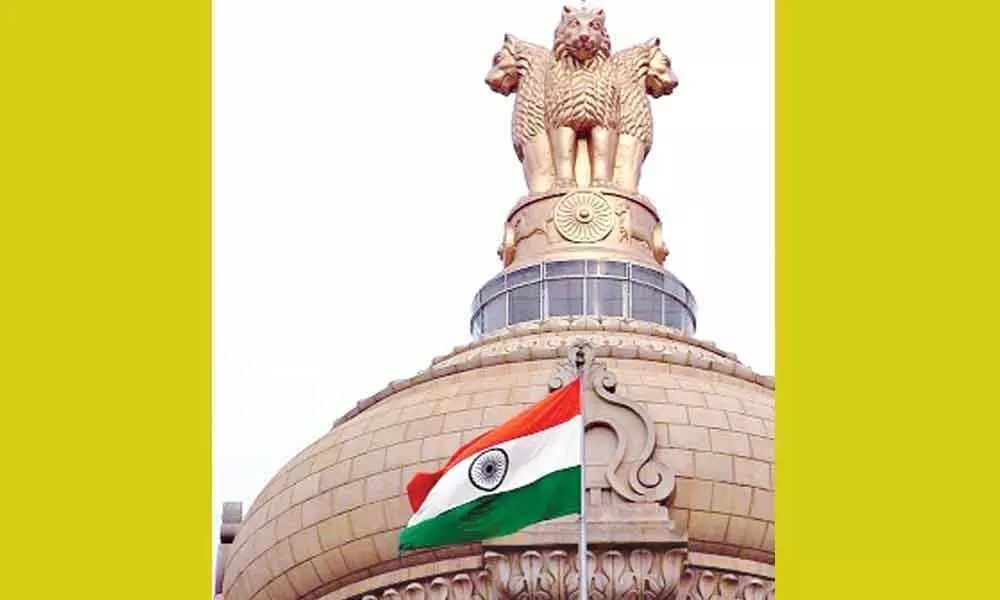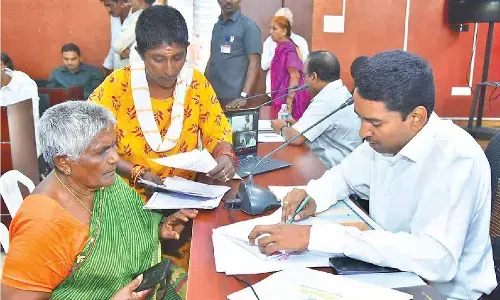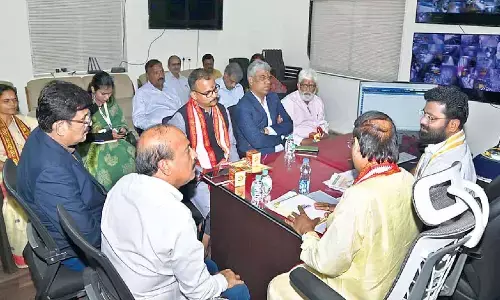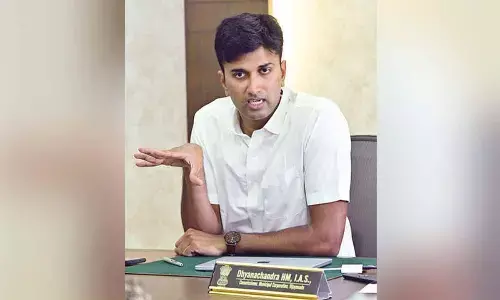Do we need new Constitution?

No, I don't support the demand for a new Constitution.But, I want old laws, articles, and reforms that need to be changed in our Constitution that match the present-day system. It will help the Government and its bodies to make swift decisions.
Just a few changes will do
No, I don't support the demand for a new Constitution.But, I want old laws, articles, and reforms that need to be changed in our Constitution that match the present-day system. It will help the Government and its bodies to make swift decisions. It will help us grow faster compared to previous years. For example, the head of the table, someone like the PM/CM, should be elected by the people (voters), not by party members after elections. Secondly, PM/CM can appoint/remove the members of his cabinet, other ministers. The other ministers need not be members of the legislature. It will enable PM/CM to appoint efficient persons as ministers. These are a few points that can be changed in our Constitution. Otherwise, our Constitution is one of the best in the world.
H Shashikanth, CEO, Oxygen ITES Pvt Limited, Hyderabad
Why change the Constitution at all?
There is no need to change the Constitution. The Constitution of India has played an important role for the nations of the world. Many social analysts say that the Constitution of India is more unique than the constitutions of the rest of the world. Currently there are 448 Articles, 21 Sections and 12 Schedules. The Constitution of India does not say that caste is anti-religion which means it is possible for people of any religion, caste or creed to live. The Constitution of India is framed with the fundamental principles of freedom, equality and fraternity. It suffices to see governments implementing all the fundamental principles enshrined in the Constitution.
Dr Koduri Srivani, NSS Coordinator, Satavahana University, Karimnagar.
New Constitution calls have ulterior motives
The recent calls for changing the Constitution of India reek of ulterior motives. Our Constitution has imbibed the best from various constitutions and is at the same time relevant to our polity and people. India is an amalgamation of various races, cultures, languages – a diversity that thrives in the uniqueness of various communities that live together in this vast land.
Unless the idea is to change the secular fabric of our country and make it a majoritarian state, there is no need for a new constitution. Our Constitution gives us the right of religious freedom, equality for all citizens, freedom of speech, adult suffrage, right to life and personal liberty. What do they want to change? it's pertinent to note that membership of the Nazi Party at the height of its popularity was only 10% of the German population. So much destruction was wrought because of a vicious minority and apathetic majority. Let's not make the same mistake.
Sara Mathews, Social Activist, Hyderabad
Parl has no power to replace it
The greatest jurists of that time had spent over two years reviewing and incorporating the best features, which stand out among the world's best constitutions to develop the Indian Constitution. It took into account the interests of all sections of society.
All Constitutional Amendments, as it stands, are subject to judicial review and the Supreme Court has the authority to declare any such amendment that attempts to affect the basic structure unconstitutional and null and void from the historic Keshavananda Bharati case of 1973. Thus, Parliament's power is not absolute.Furthermore, under Article 368, Parliament has the power to "amend" the Constitution and not "change" or "replace" it in the first place. I would like to conclude that the Constitution, per se, and the SC judgements over the time, had made amendment to the constitution be done when the parliament deems it absolutely necessary. But it also doesnot completely erase the parliament's power to amend it, thus making the constitution live and up-to the date.So replacing the Constitution, after 75 years of independence and 73 years of adopting the constitution, for that matter, becomes increasingly irrelevant and unneeded.
G Sri Lakshmi Chandana Reddy, Civils aspirant, Khammam









